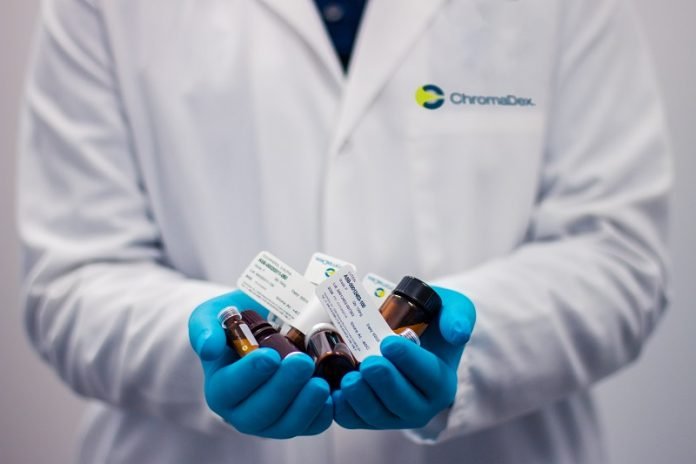
Early on in the pandemic, healthcare providers had very few options for treating patients hospitalized with COVID-19.
While drugs like the highly publicized hydroxychloroquine have been proven to be ineffective, others have risen to the top with enough evidence that they help to shorten illness and save lives.
Daniel Kaul, M.D., professor of internal medicine, describes what’s known about current COVID-19 therapies:
Monoclonal antibodies
Monoclonal antibodies, like the ones produced by the pharmaceutical companies Regeneron and Lilly, are drugs that have shown promise when given to patients early in the course of their disease.
President Trump received a large dose of the Regeneron cocktail during his bout with COVID in October.
The drug produced by Lilly, called bamlanivimab, recently received emergency use authorization for the treatment of mild to moderate coronavirus by the FDA.
“When you are infected with SARS-CoV-2 or if you were to receive a vaccine, the body generates antibodies against the virus,” explains Kaul.
“Here’s a way to give those antibodies very early on…in a way, it’s giving the effect of a vaccine that lasts for a few weeks.”
This treatment is available in very limited supply for emergency use in people at high risk for severe COVID-19 or hospitalization, like people who are obese, over the age of 65, or who have an underlying medical condition that puts them at high risk.
It is not authorized for use for patients who are already hospitalized with COVID or who are receiving oxygen therapy, as data have shown that monoclonal antibodies are associated with worse outcomes in these groups.
The emergency use authorization is good news, says Kaul. And it could ultimately be used as a preventive measure in more vulnerable populations, such as people in nursing homes, once it gains full FDA approval and more doses are available, says Kaul.
“The fact that we have an early therapy is a frame shift for providers. The challenge is how do we quickly identify those patients that can benefit soon after they get a positive COVID test.”
Remdesivir
Remdesivir is a FDA-approved antiviral drug that has quite a bit of data supporting its use in certain patients, says Kaul.
Michigan Medicine has been using the treatment since the spring, first as part of a clinical trial, then under emergency use authorization and now with full FDA approval. It works by blocking the virus from replicating in the body.
For patients who are hospitalized for moderate or severe COVID, “it’s demonstrated that they go home quicker,” he notes. However, the drug so far appears to have no effect on whether people die from COVID.
And it appears to have no effect on patients with severe disease who are on high-flow oxygen or a mechanical ventilator.
Dexamethasone
A drug that is 60 years old is turning out to turn the tide for many patients with severe COVID-19.
Dexamethasone is a corticosteroid that has long been studied for the treatment of acute respiratory disease syndrome and sepsis.
This summer, U-M’s Hallie Prescott, M.D., associate professor of internal medicine in the division of pulmonary and critical care medicine, and colleague Todd Rice, M.D., of Vanderbilt University outlined the evidence supporting the use of corticosteroids in patients critically ill with COVID-19 in the journal JAMA.
“They work by decreasing the body’s misdirected, over-exuberant immune response, so they have to be given at the right time to the sickest patients,” says Kaul.
He warns against giving them to outpatients as they can be harmful if given during an active viral infection.
“They need to be used with careful follow-up.” He stresses that these drugs may be harmful if given early in the course of the disease, and should not be used in the outpatient setting.
Other current therapies for COVID-19
Supplemental oxygen is standard of care for patients with low oxygen levels, and standard treatment to reduce the risks of blood clotting are important, says Kaul.
Early on, convalescent plasma, an old therapy where patients are given blood plasma from people who recovered from COVID-19 and generated antibodies against SARS-CoV-2, received emergency use authorization from the FDA.
It was used by providers desperate to offer any therapy, but says Kaul “there really is no good trial data to support its use” and trials are still ongoing. Similarly, over-the-counter supplements like vitamin C, D, and zinc, currently have no evidence to support their use.
While several clinical trials of investigational therapeutics are underway at Michigan Medicine and elsewhere, for the time being, monoclonal antibodies, remdesivir and corticosteroids represent the best options so far for patients with COVID-19.
Written by Kelly Malcom.



